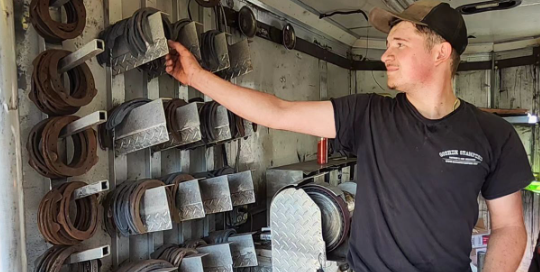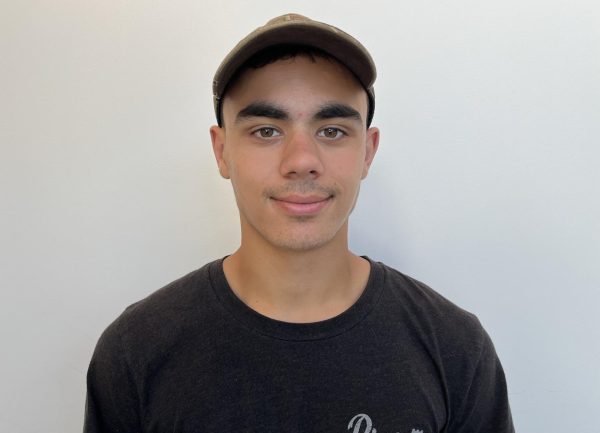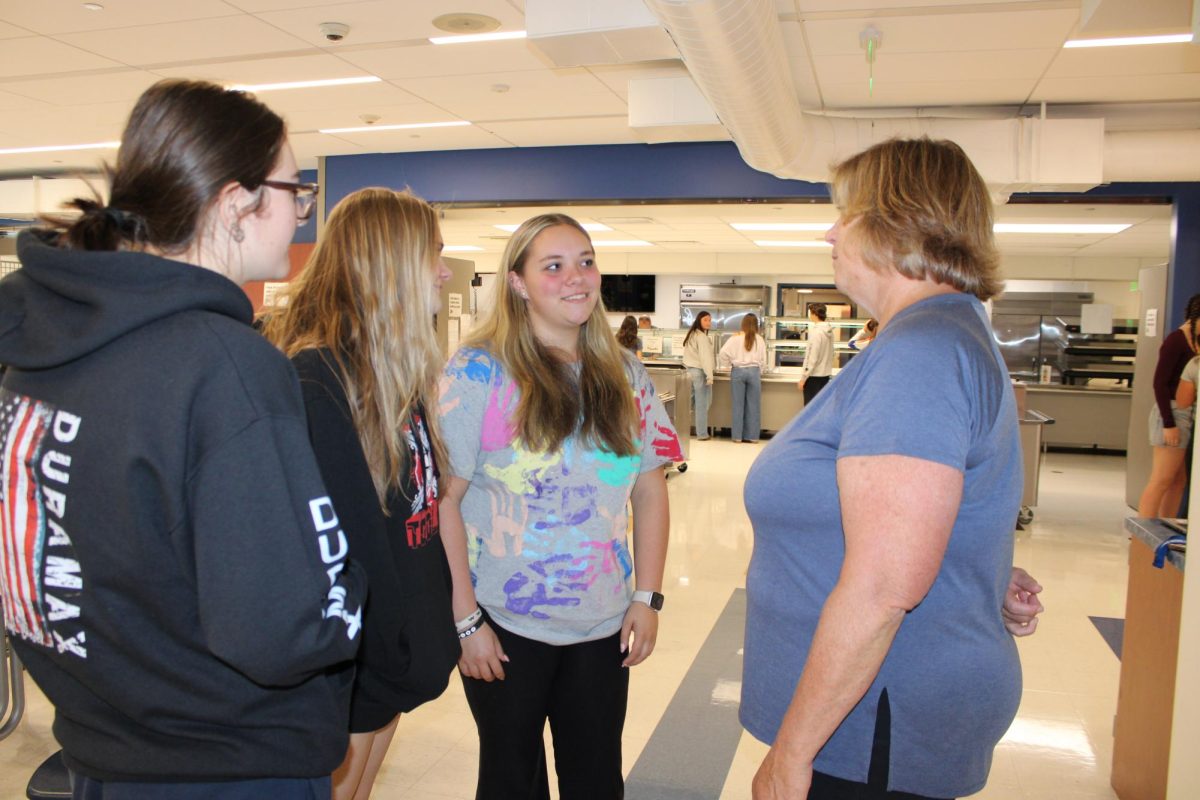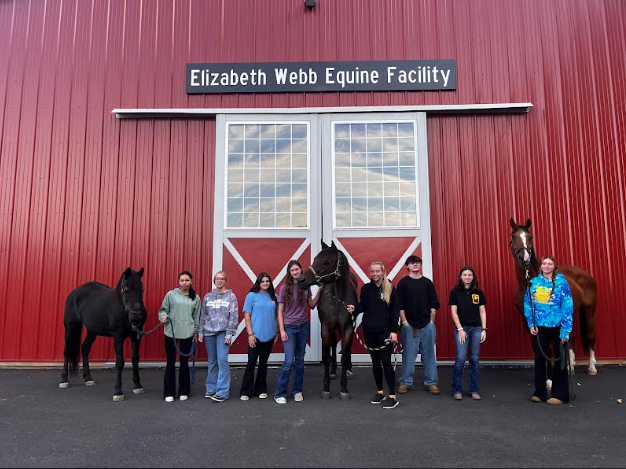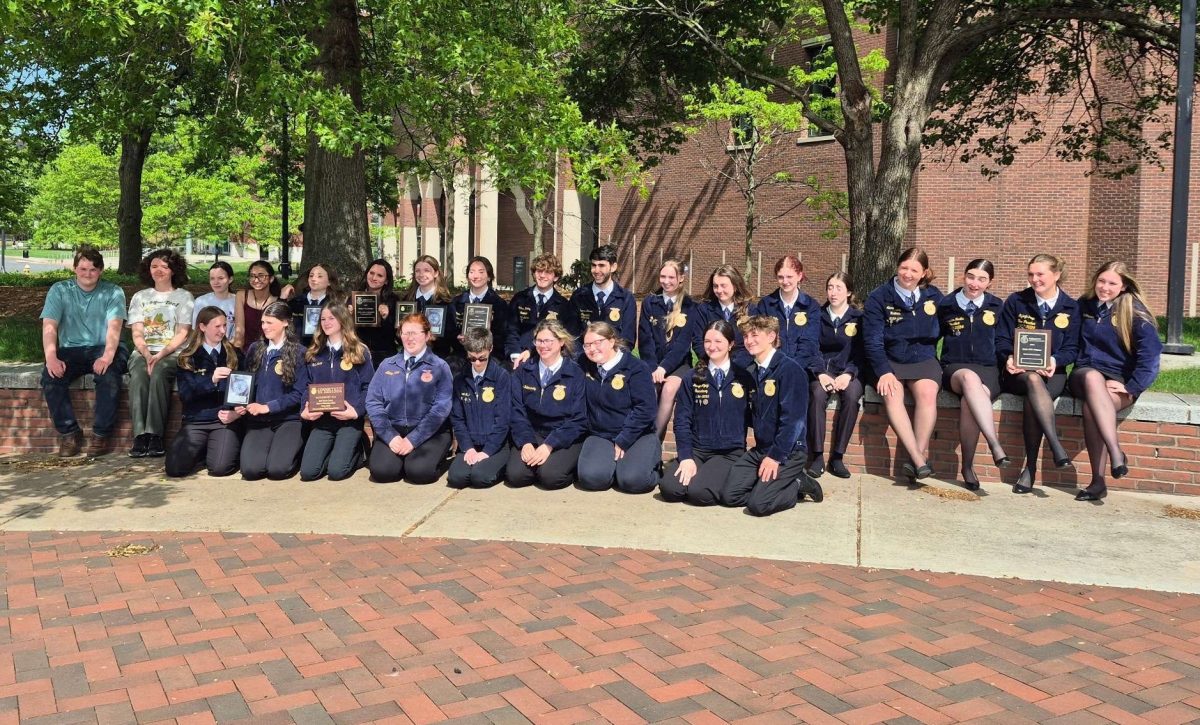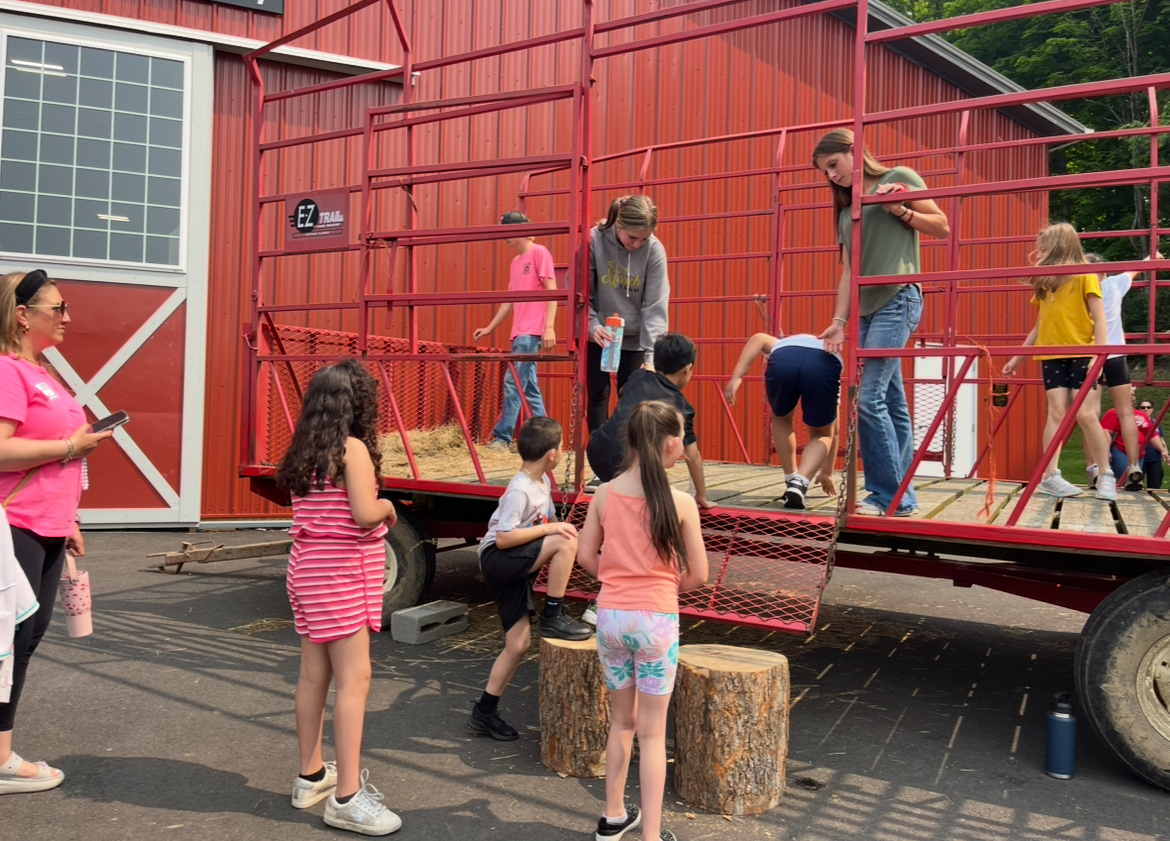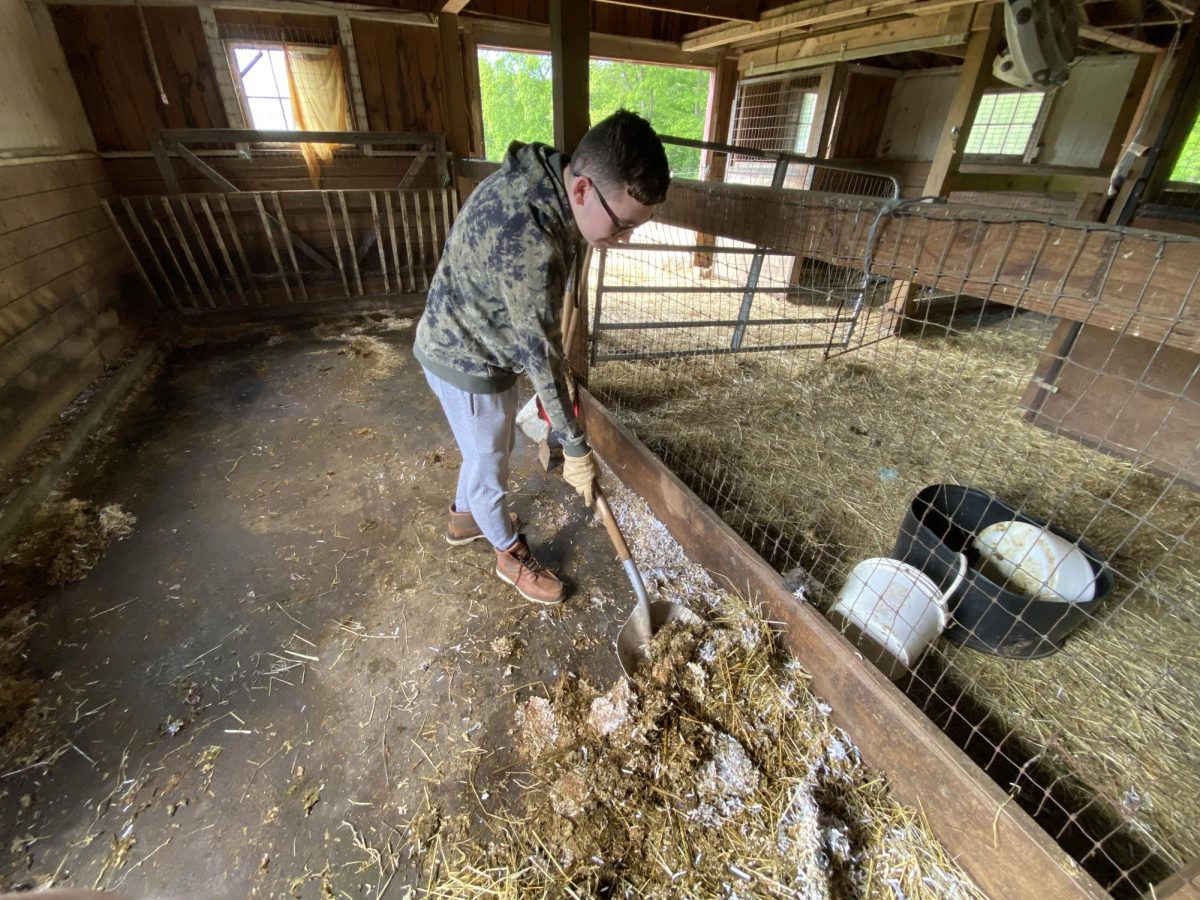WOODBURY — The Future Farmers of America is no mystery to the student body of Nonnewaug High School, yet through the public vision, many practices and opportunities of the FFA are lost in a field of confusion.
Nonnewaug High School, originally created in conjunction with the FFA’s agricultural program, is proud of its very own star-studded chapter, the Woodbury FFA.
The agriscience program itself has evolved to reach many important agricultural industries, including aquaculture, natural resources, ag production, ag engineering, veterinary science, equine science, horticulture, floriculture, greenhouse production, and landscaping.
The skills and experiences given through these core classes are essential to the dying agricultural industry of Connecticut, shaping young minds to grow a chance for a new generation in agriculture.
Students of this new generation have to absorb years of experience just to compete in their field. The FFA eliminates this roadblock through the process of SAE.
The Supervised Agricultural Experience, or SAE, creates the backbone for experience out in the field. Students of the ag program are trained in school and take that experience to a paid or unpaid job in the agricultural field
Agricultural students have to make 200 hours of agricultural work or service each year as credit for this part of the program. Failure to achieve the merit of 200 hours by the beginning of next year’s starting mark results in termination from the agricultural program.
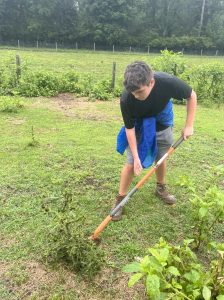
Even as it seems like a high bar to reach, our agricultural students go far beyond, embracing their work as the core part of the curriculum to which it is.
Mason Pieger, a senior, works at Ideal Fish in Waterbury and is trusted to take part in the upkeep of their aquatics farming. As a part of his job, Pieger works with feeding Branzino, monitoring their water quality, cleaning their filtration systems, as well as running farmers markets for Ideal Fish.
According to Pieger, by following through with his SAE, he was able to grow his strengths and limit his weaknesses.
“My SAE has helped me grow significantly,” said Pieger. “It has really helped my overall knowledge of water quality metrics, fish health and care, and social ability.”
Pieger is just one prime example of a trusted agricultural student working his SAE.
Jacob Gorlewski, another senior, currently works at Flanders Nature Center teaching groups of children and young adults the importance of preserving nature. Gorlewski enjoys working with animals at Flanders, as well as providing some children with their first experience alongside livestock
Although he is not working at a farm, Gorlewski ties his SAE into the agricultural field through natural resources and agricultural Education.
“My SAE has taught me not only about preserving nature, yet life-long lessons on public speaking and education,” said Gorlewski. “I will hold these skills hoping they will assist me in future jobs.”
SAE makes many students reach out of their shell, but the FFA community appreciates the program with the understanding that it prepares them for the future.
“SAE is preparing me for my future,” said Pieger. “It’s much better learning to work now than five years in the future.”



